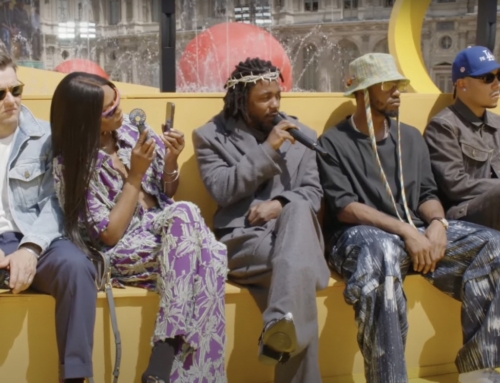For many mainstream performers prior to 2010, careers arched from the highly-sought after club residency to the single topping the Beatport charts to finally making it to the main stage at a major festival like Electric Daisy Carnival or Ultra. But throughout this decade’s long path, one factor remained: The DJ or producer built up a noticeable sound, be it through the tracks selected for a set, remixes, or his own productions.
So what happens when a performer wants to break from the mold and, frankly, dabble with something different? It’s a tough choice. On one hand, particularly in dance music, consistency keeps fans happy: Dependability with the right beats, speed, and keyboard lines means fans, listeners, and clubbers latch onto the vibe right away.
A change? You’ll hear, “WTF is this ish?” across the crowd.
Think that’s an exaggeration? All DJs have had at least one floor-clearing single that the crowd just can’t get into. Or on a mainstream level, consider Avicii’s Ultra 2014 performance, which rippled through with a discontented crowd and peers questioning his credibility for bringing live performers out to do his then-new folk-house hybrid on the festival’s main stage.
It’s a tight rope to walk, between reliable consistency and innovation, no matter if you’re behind a computer playing around with plug-ins or rummaging through record crates. Still, there comes a time in which a DJ or producer wants to experiment and get out of his comfort zone without alienating his fan base, and that’s when the alter ego becomes a necessity.
Your Exploratory Character
Roger Sanchez is the latest mainstream performer to get attention for trotting out an alter ego. Sanchez made news recently for new single “Dangerous Thoughts,” released through his S-Man moniker.
In a press statement, Sanchez said, “The S-man was born in the underground and that’s where he has returned. Dangerous Thoughts is the first release in a long time for my alter ego but now I’m back in S-man mode and it’s all about the BASS!!”
Sanchez has been returning to S-Man, his underground producer side since 1994, and he’s not the only established performer to do so. For those that don’t remember, Moby had his Voodoo Child character debut more than 10 years ago. Like Sanchez, Moby introduced Voodoo Child as his “underground” outlet, away from being at the top of the dance music world in the late ‘90s and early aughts.
“The DJ’s were playing hard, sexy, straightforward dance music, and it was perfect,” he said to Billboard in 2003 about this decision. “I was reminded of just how much I love hard, sexy, straightforward dance music, and when I arrived home the next day I decided to make a simple, straightforward dance record. Not an experimental record, not an avant-garde record, but a straightforward, underground, electronic dance record.”
But is an alter ego something you keep secret? These days, it’s as if producers or DJs with an already-established sound announce their secondary underground or more experimental character before even putting out a track.
Take Dillon Frances, for instance. The producer best-known for a trap sound – and one that’s earned him ranks on the Billboard Dance/Electronic Songs chart — recently announced DJ Hansel, for making deep house tracks.
On one hand, it’s a fairly sizeable leap, especially today, but if Frances wants to try out deep house, why not? It couldn’t be any worse than Deadmau5’s half-assed dubstep and hardstyle attempts. On the other hand, Frances’ video about the decision could just be trolling the underground with his German-sounding moniker. It’s as if he’s saying, “I’ll be German, make some half-baked deep house, and authentic dance music cred is imminent!”
But Frances isn’t the first one to create a foreign-sounding name for a side project. Stuart Price – otherwise known as Jacques Lu Cont – has been doing this for years with a fair amount of success as a French-sounding house producer who’s made hits for New Order and Madonna.

But If You Make an Alter Ego, Do It Well
One of the factors making John Dahlback’s Demure project feel like it came out of nowhere, or Eric Prydz’s Cirez D sound fresh and original is the extreme contrast with the artist’s traditional sound.
These days, Prydz straddles between underground and big-room house, while Dahlback, making respectable progressive house, appeared to step away from dance music with Demure. But other artists haven’t been as successful, and such side projects under a different moniker end up looking like laughable missteps.
Take Tiesto, for instance. While his trance sound appears a relic of the aughts, with his productions leaning more toward progressive house and “indie pop” these days, he’s tried to get back in his old school groove with Allure and TST. Both hint at a simpler time in his career, and at dance music in general, but from a listener’s perspective, both are unmistakably Tiesto, and make you wonder, “Why didn’t he stick with this sound in the first place.”
Other trance heavyweight Armin Van Buuren wasn’t shy about going between his latest tracks and those from throwback alter ego GAIA. Like Tiesto, it appears Van Buuren introduced this side to keep up his trance credibility, all while adding GAIA’s own tracks to his own sets.
It’s Not Just a Mainstream Thing
So with everyone from Sanchez to Dahlback to Tiesto, alter egos start to look like an outlet away from mainstream expectations, be it a vocal-driven track, a predictable production style, or something that will become a clear hit on the Beatport and Billboard charts.
But for the working DJ or producer, it’s still a practical move. When we spoke with New York’s DJ EBAR in 2012, he revealed that for every genre he produces, he invents a new alter ego: EBAR’s for house, and others are used for techno and electro tracks. That way, it appears, each name comes with a clear identity.
Similarly, the DJ Tranzit, when speaking with the Phoenix New Times before doing a local gig, talked about his approach to creating his sound — electro and progressive for Tranzit and techno and minimal under the Juheun moniker – and having two separate identities emerges like a necessity.
So ultimately what it comes down to is, “Do I already have an established sound?” These days, if you can say yes, you should then consider how changing it could affect your career.





